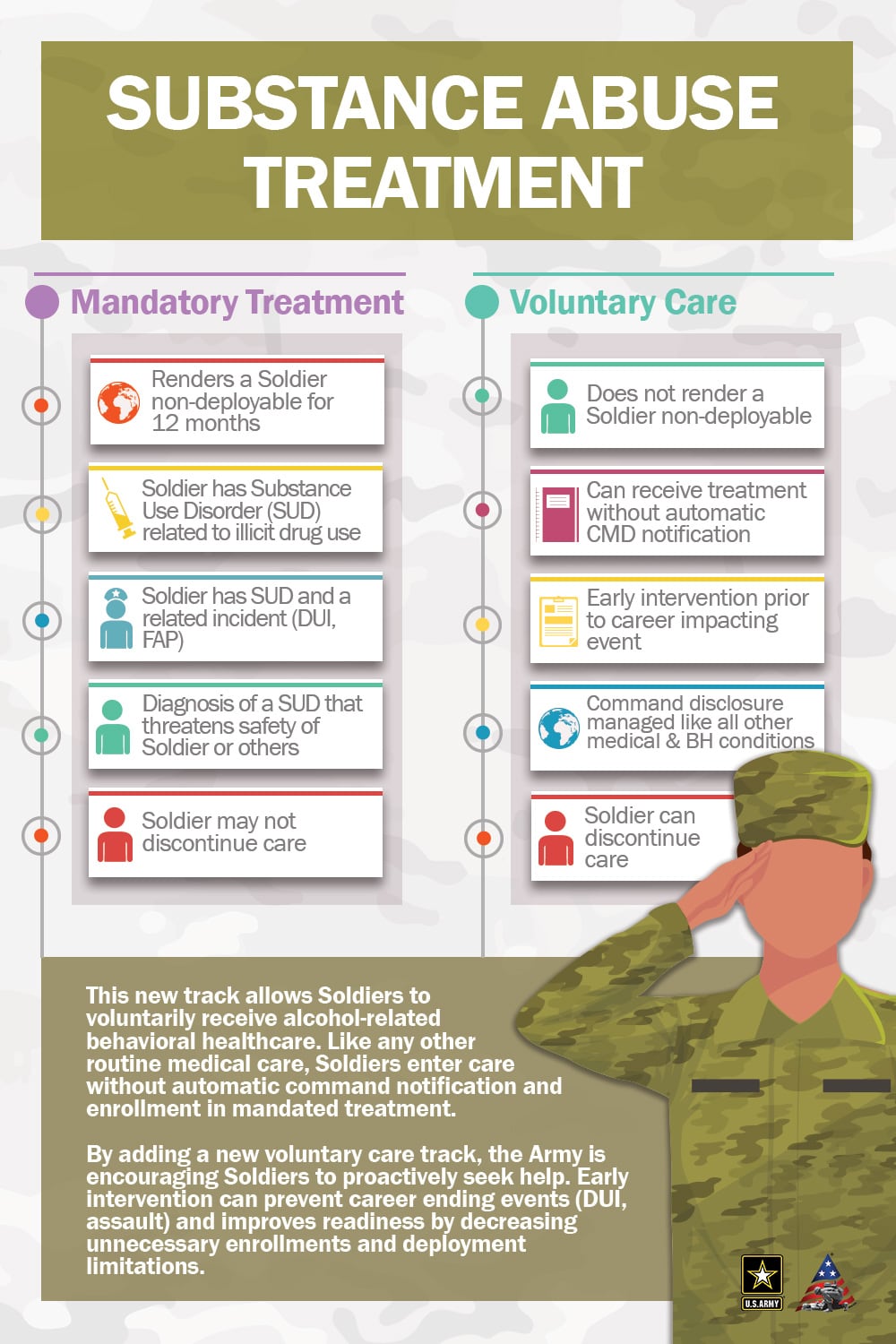The Army wants to make it easier for soldiers to seek alcohol abuse treatment on their own, rather than be mandated by their commands, and a new directive makes that possible.
In a memo signed March 25 by Army Secretary Mark Esper, certain soldiers will be able to opt into alcohol abuse treatment, without affecting their deployability, a major deterrent in seeking care under the previous policy.
“By distinguishing voluntary behavioral healthcare form mandatory enrolled substance abuse treatment, the Army will encourage soldiers to seek help earlier and will improve readiness by decreasing unnecessary enrollment and deployment limitations,” Esper wrote.
Now, soldiers can get help for a drinking problem, as many times as they feel necessary, without affecting their ability to do their job or the fear of facing separation ― and hopefully, before a discipline issue lands them in administrative or criminal hot water.

The idea came out of an Army study, whose results prompted Esper to move the Army Substance Abuse Program’s clinical component from Army Installation Management Command to Army Medical Command, as well as making substance abuse care part of Army behavioral health.
The study also found that, because mandatory enrollment in alcohol treatment came with a nondeployable status ― “regardless of the severity of their condition or occupational effect,” according to the memo ― many soldiers were discouraged from getting help.
“Current policy also limits the number of enrollments permitted during a soldier’s career, preventing the soldier from seeking more support at a later date without the risk of administrative separation,” the memo said.
RELATED

According to the study, more than 90,000 soldiers reported what might be considered a drinking problem in 2015, but only 11,000 soldiers were enrolled in Army treatment during 2016.
Now, there are two ways to get treatment. Mandatory enrollment can still be triggered by illegal substance use, law enforcement involvement, the need for inpatient treatment or if alcohol abuse creates an occupational risk to the soldier, as evaluated by a health care provider.
Outside of those situations, enrollment can be voluntary, and the soldier will draw up a treatment plan with a provider, which they can choose to discontinue without risk of involuntary separation.
Meghann Myers is the Pentagon bureau chief at Military Times. She covers operations, policy, personnel, leadership and other issues affecting service members.




